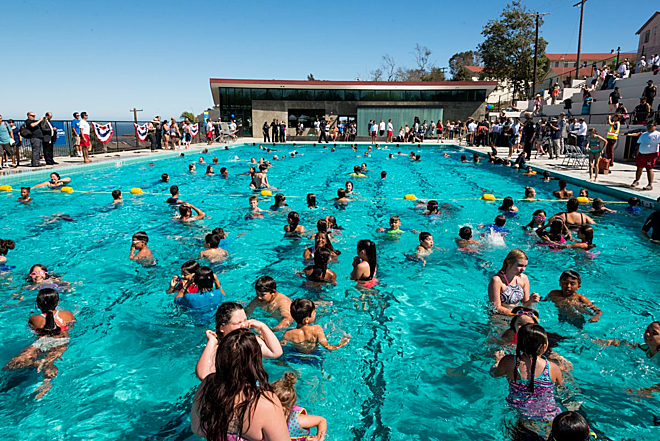Risk of infection when swimming in summer
Swimming is prone to infection due to dirty pool water, cleaning chemicals and cross-infection from adults.
The swimming pool water is very dirty.
According to research from the University of Alberta (Canada), which surveyed water from 31 public swimming pools, urine was found in all of them. Notably, a swimming pool one-third the size of an Olympic swimming pool contained up to 75 liters of urine, while a smaller swimming pool contained 30 liters of urine.
On the other hand, swimming pool water often contains ecoli bacteria, the main culprit causing diarrhea and intestinal diseases in children.
Effects of cleaning chemicals
Nowadays, swimming pools use chlorine to clean the water. According to experts, chlorine when combined with urea will create a compound that is harmful to the respiratory system, leading to asthma and eye irritation.
In addition, some swimming pools often add alum which reduces the pH level in the water, causing many children to have stinging eyes or skin burns after swimming. Children suffer from ear, nose and throat diseases, especially allergic rhinitis.
 |
| Crowded swimming pools pose a risk of disease transmission, especially to young children. Photo: CurbedLA |
Swimming pools are crowded with people, so the risk of bacterial infection is high. Many swimmers already carry pathogens that lead to the spread of diseases, especially skin diseases. In addition, water sources with high chlorine content or too strong sunlight can damage the skin and hair. Some other diseases that cause genital infections include gonorrhea, genital infections...
Drinking or choking on pool water introduces germs into the nose, throat, sinuses and causes gastrointestinal illnesses such as diarrhea.
According to Dr. Hoang Cuong - Central Eye Hospital, summer is the time when conjunctivitis related to swimming increases, especially in young children. This is a common disease when swimming in an overloaded swimming pool, the sterilization of the pool water is not hygienic. Symptoms of the disease include red eyes, a lot of discharge, itching, watery eyes...
In addition, when swimming or playing in the water, children often enjoy it and do not want to go back to shore. This leads to the risk of children being exhausted, easily catching colds and cramps, which is very dangerous.
Notes when taking children swimming in the summer
To ensure safety, experts recommend that children should swim in age-appropriate pools. Choose pools with good disinfection and a moderate number of swimmers.
On hot days, children should swim in covered pools. Do not let children swim at noon, under the hot sun, as they can easily get heatstroke. Do not let children soak in the water for too long. Each swimming session should only last about 30-45 minutes. When children have just finished swimming, they should be thoroughly bathed in clean water to avoid contamination from the pool water and dried before dressing.





